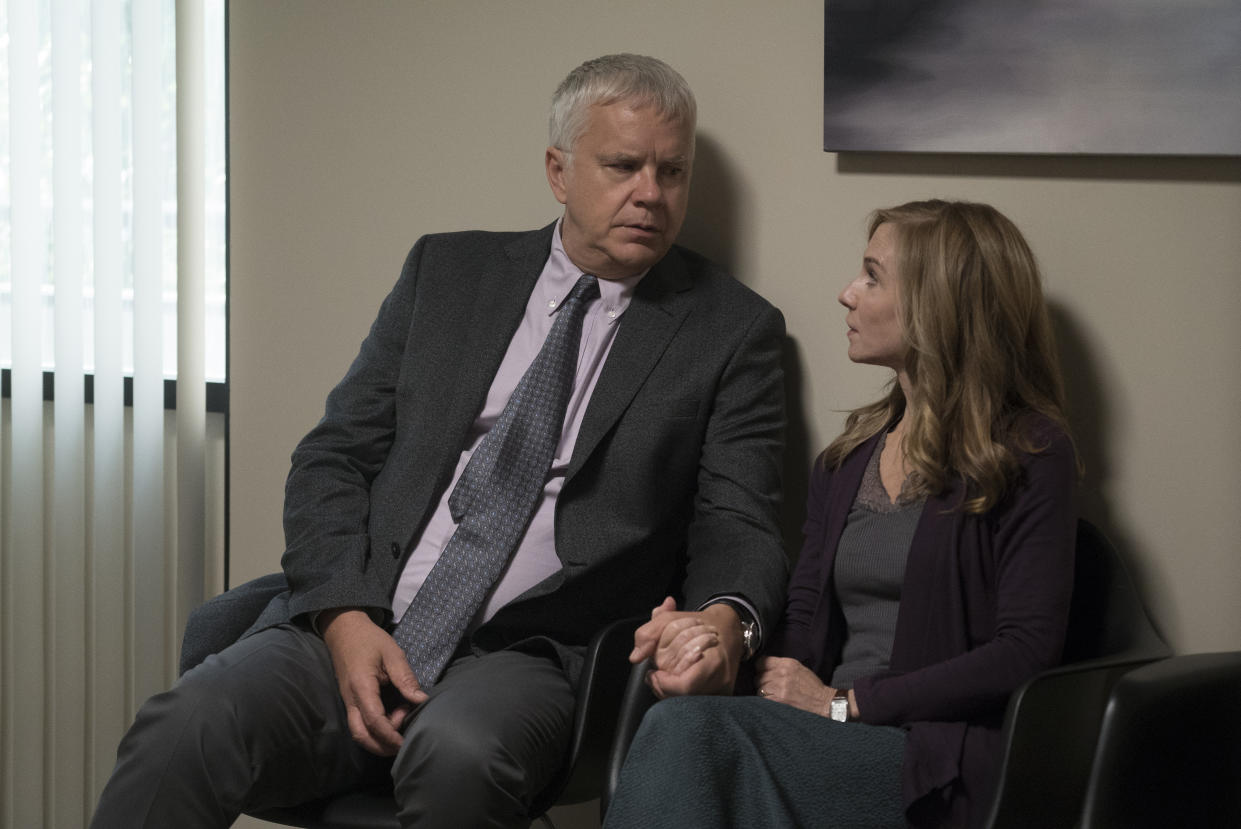Does new drama 'Here and Now' suffer from diversity overload?

The new Alan Ball HBO series Here and Now isn’t a very good TV show, but I watched every second of the four episodes HBO sent out for review, and I’ll probably watch every second of the series as it’s doled out weekly. Why? Because the damn thing is irritating, intelligent, well-acted, infuriating, self-righteous, curious, inadvertently funny, and pretentious, and Holly Hunter is in it. Ball, best known for creating the HBO hit Six Feet Under, has created a show that’s bound to be polarizing — indeed, sometimes it seems as though that’s the primary reason for its existence: Ball desperately wants to be Part of the Conversation.
The conversation, that is, about what it means to live in multicultural America in 2018. The show, premiering Sunday, stars Tim Robbins and Hunter as Greg and Audrey Bayer-Boatwright, a progressive Portland, Ore., couple who have one biological daughter, Kristen, played by Sosie Bacon, and three adopted children. Daughter Ashley (Jerrika Hinton) was adopted from Nigeria, son Duc (Raymond Lee) from Vietnam, and son Ramon (Daniel Zovatto) from Colombia. Papa Greg is a well-regarded philosophy professor — his career-making book, A Lay Person’s Guide to the Here and Now, gives the show its title. Mama Audrey runs a nonprofit called the Empathy Initiative that is every bit as squishy-liberal as it sounds. If Fox News’ Tucker Carlson listed everything that drives him crazy about political correctness, he’d come up with the premiere episode of Here and Now.
Ball and his writers strive mightily to give each of these characters her or his own storyline that will explore the unique challenges of their ethnic backgrounds. Too often it leads into a stereotype — a parade of diversity that never seems joyous. Every family member is living his or her own private hell. Ramon has just acquired a hotsy new boyfriend, Henry (Andy Bean), but he has also started to have surreal visions that torment him. Ashley is married to a guy who’s devoted to her, but she finds him too wimpy and seeks thrills with younger men and cocaine. Duc comes on like a got-it-together life coach — no, no, he corrects you: “motivational architect” — but he’s actually a miserable sex addict. Greg and Audrey’s marriage is both strong (they truly love each other) and splintering (she’s depressed; he sees a prostitute regularly). Here and Now is a constant bummer regularly interrupted by moments of supernatural oddness via Ramon’s vivid visions.
Here and Now is also very much a product of the Trump era. Audrey refers to an old acquaintance as “a Republican — you know, before Trump.” Greg doesn’t so much lecture his college students as inveigh against the present-day: “All I see is ignorance, terror, and rage! We lost, folks, we lost!” (Erm, will we be graded on this pop quiz, Professor Greg?)
So why is Here and Now so watchable? Because the performances are terrific, and Ball, for all his miserablism, knows how to write scenes that exert an emotional pull. Hunter and Robbins are superb as the parents, and in the four episodes I watched, Lee’s Duc and Zovatto’s Ramon were standout players. Ball also fills the show with little details that ring true, such as having Audrey extol the virtues of the blues to her daughter by playing a Bonnie Raitt track — it figures that she would be listening to an example of white blues. Here and Now is going to annoy a lot of people for its white-people-centric view of diversity, but it’s not because Ball and his, yes, diverse writing staff aren’t trying to expand their point of view. It’s just that well-meaning enlightenment isn’t a very appealing goal when it comes to entertainment.
Here and Now premieres Feb. 11 at 9 p.m. on HBO.


